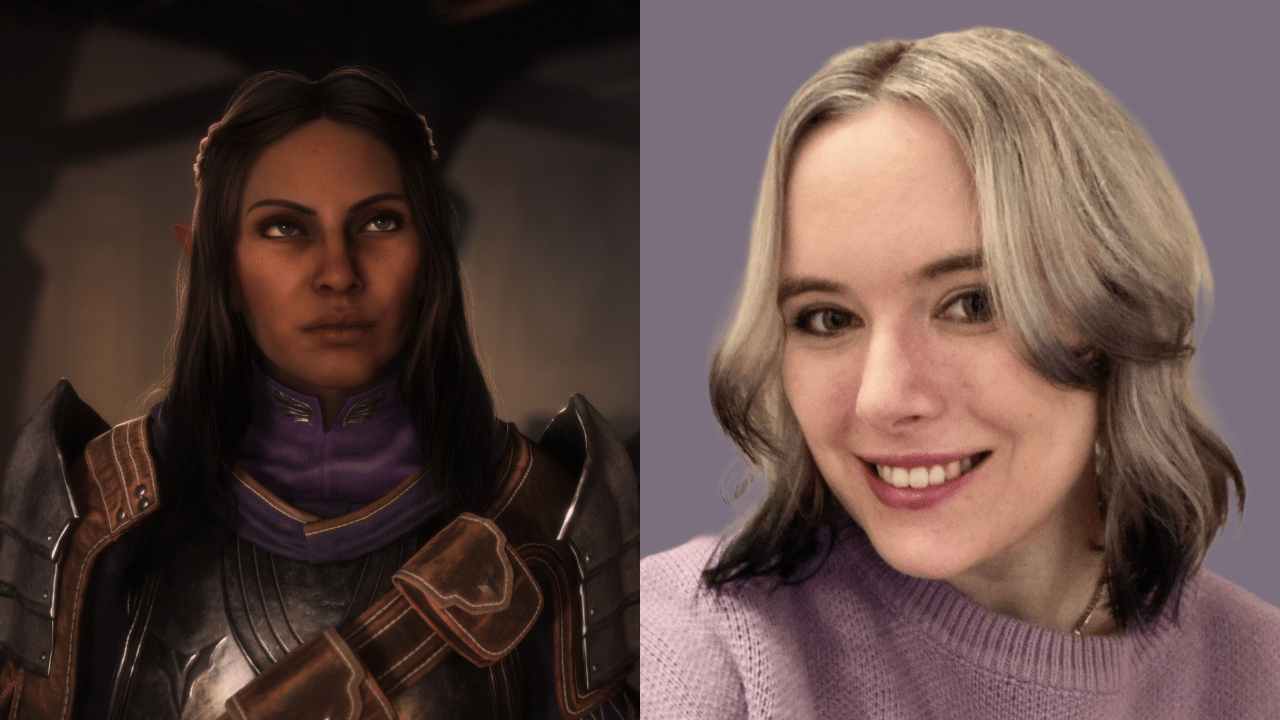
Emma Kent, a former games journalist at Eurogamer who now freelances as a mock reviewer for video game developers, attempted to gaslight gamers on what DEI consultants are doing.
Screenshot of Emma Kent’s LinkedIn Account
In a thread on X, Kent wrote, “Hello, game consultant here: The idea that consultants are forcing diversity into games is ridiculous, because 99% of the time the devs have already decided they want their game to be inclusive, and just want help fine-tuning how certain stories come across. Hope this helps.”
Emma Kent on X
In a subsequent post, she continued, “The people peddling this conspiracy theory are fabricating rage bait content to grow their YouTube channels and social media followings. They do not understand how the industry actually works, nor do they care to learn, because they are simply seeking engagement.”

Emma Kent on X
First off, DEI consultants are indeed trying to force diversity into games.
Sweet Baby Inc. used to make it very clear that is what they did. Their website used to state, “Our mission is to tell better, more empathetic stories while diversifying and enriching the video games industry. We aim to make games more engaging, more fun, more meaningful, and more inclusive, for everyone.”
Sweet Baby Inc. About Us section
During the 2019 Game Developers Conference, Sweet Baby Inc.’s CEO Kim Belair also suggested that developers working at AAA studios terrorize their employers in order to hire consultants that push the woke agenda.
She said, “If you’re creative working in AAA, which I did for many years, put this stuff up to your higher-ups. And if they don’t see the value and what you’re asking for when you ask for consultants, when you ask for research, go have a coffee with your marketing team and just terrify them with the possibility of what’s going to happen if they don’t give you what you want.”
“Because they have to consider– I say that out loud as a joke, but it’s actually very, very true because if you start to consider the people who are player and audience facing and you have to deal with mitigating harm and with keeping the sentiment around their game and their project positive, there’s like a genuine value that you could impress upon them both ethically and financially. You could say this is important,” she said.
Belair elaborated, “It’s also a valid discussion to have because if you’re working with a thin narrative budget and you work in AAA, I think you’ll be pleasantly surprised or dismayed by the amount of money that marketing can give you.”
As she got to the end of her presentation, Belair would admit what she’s doing is injecting wokeness into the video game industry, “None of what we’re doing is about ticking boxes or about a veneer of wokeness. We actually have to care about making this stuff.”
In fact, in an interview with InclusionFX, Belair admitted her goal was to takeover the video game industry.
She said, “In 2018, one of my best friends and I, we teamed up and we founded a company. The original desire was just to write together. We wanted to write with the two of us and a friend of ours and we wanted to write games. But we realized that as a unit we realized we were capable of doing for others what had not been done to us, which was to support us, empower us, to lift us up, to value our talent, and to help build our skills.”
She continued, “And so, today, what we do is writing, narrative design, story building, story breaking as our first and foremost. But on a secondary level we work very hard to get marginalized talent into the industry, to protect them the way that we would want to have been protected, to lift them up, and to get them into an industry where they’re too often shut out.”
Belair then admitted, “And basically, I think, to take over in the hopes that some really dope people will be able to lead into a kind of a new era for an industry that’s been kind of been, you know, the same way too long.”
Sweet Baby Inc. CEO Kim Belair via InclusionFX YouTube
So video game consultancies are indeed trying to force diversity. But many of the AAA developers are pushing it as well and they make that very clear on their websites and in various reports.
For example, Ubisoft has an entire page on their website titled Diversity, Inclusion and Accessibility. A statement from the company’s Vice President of Global Diversity and Inclusion Raashi Sikka reads, “For Ubisoft, putting diversity and inclusion at the heart of everything we do means providing an environment where employees can thrive, building open-minded communities where players can connect, and creating games that reflect the diversity of the world we live in.”
“We will not accomplish all these goals overnight. Just as it takes years of iteration to develop a AAA title, we will only become a more diverse and inclusive company by continuously improving, trying new ideas and learning from the results. It’s a long-term commitment, one that we will tackle with the same passion and dedication that we bring to our games,” she adds.
A screenshot from Ubisoft’s Diversity, Inclusion and Accessibility website
Activision CEO Rob Kostich wrote a similar statement on the company’s Diversity, Equity, & Inclusion website. He wrote, “For us to operate at the top of our game in both areas, it is imperative that we champion diversity, equity and inclusion environment where everyone can show up as the best version of themselves motivated and comfortable to push our thinking in all new ways.”
“As we look at our player community we properly reflect the diversity of our players in our teams, and in our thinking, in order to exceed their needs and expectations as they connect in our incredible games,” he added.
Kostich also stated, “This culture journey is one that never ends; we will strive to improve every day. This is an essential global team effort that we will continue to refine together.”
An image of Rob Kostich’s statement on Activision’s Diversity, Equity & Inclusion website
Sony, the owner of PlayStation, also has a Diversity & Beyond page on its website. The page states, “At Sony Interactive, we aim to be the best place to work, where all employees feel valued and all voices are heard. We foster inclusive teams and shape a vibrant corporate culture with a sense of belonging for everyone involved every step of the way.”
It then lists three pillars to achieve that goal: Diverse Workforce, Inclusive Workplace, and Diversify the Gaming Industry.
Specifically under Diversify the Gaming Industry it reads, “reparing and nurturing underrepresented talent for a career in the gaming industry by offering scholarship programs, mentoring, and exposure opportunities to inspire greater diversity in games and accessibility in products.”
A screenshot of Sony Interactive Entertainment’s Diversity & Beyond web page.
And, yes, BioWare’s parent company EA has a Diversity and Inclusion page on its website as well.
It states, “We embed inclusion in our practices throughout the employee lifecycle — from how we attract talent, to how we develop and retain talent, to how we compensate and create a sense of belonging.”
A screenshot of Sony Electronic Arts’ Our People & Inclusive Culture web page.
It is not a conspiracy theory. There are consultancies like Sweet Baby Inc. that indeed trying to push woke ideology and diversity into gaming and at the same time many of the major video game developers have policies listed on their websites that indicate they are attempting to do the same thing.
What do you make of Kent’s comments?





